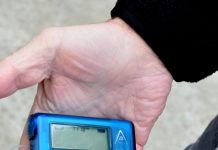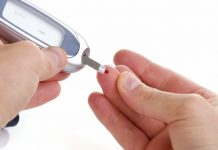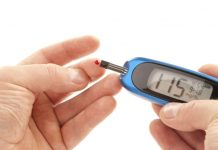Depression may make it harder for people with diabetes to keep their blood sugar levels in check, researchers have found.
In a study of more than 11,000 U.S. veterans with type 2 diabetes, the investigators found that over a decade, those diagnosed with depression consistently had a higher average hemoglobin A1C level — a standard measure of long-term blood sugar control.
The findings are concerning, in part, because studies have found that diabetics have a higher risk of depression than non-diabetics. It’s estimated that about 30 percent of people with diabetes also suffer from depression at some point.
“Our study shows that depression is a major and important co-morbidity in people with type 2 diabetes,” Dr. Leonard Egede, one of the researchers on the current study, said in a written statement.
He and his colleagues at the Medical University of South Carolina, in Charleston, report their study findings in the journal General Hospital Psychiatry.
Briefly, the researchers analyzed records from 11,525 mostly male veterans treated for type 2 diabetes between 1997 and 2006. At the outset, 6 percent also had a diagnosis of depression. On average, the researchers found, this group consistently showed a higher hemoglobin A1C level over the years.
The difference between groups was small — a gap of 0.13 percent overall — but for any one person, even a slightly higher hemoglobin A1C, sustained over time, can raise the risk of diabetes complications, Egede noted.
The reasons for the findings are not clear, but one possibility is that dealing with depression makes it harder for diabetics to manage their blood sugar with lifestyle measures and medication.
Source: Reuters













